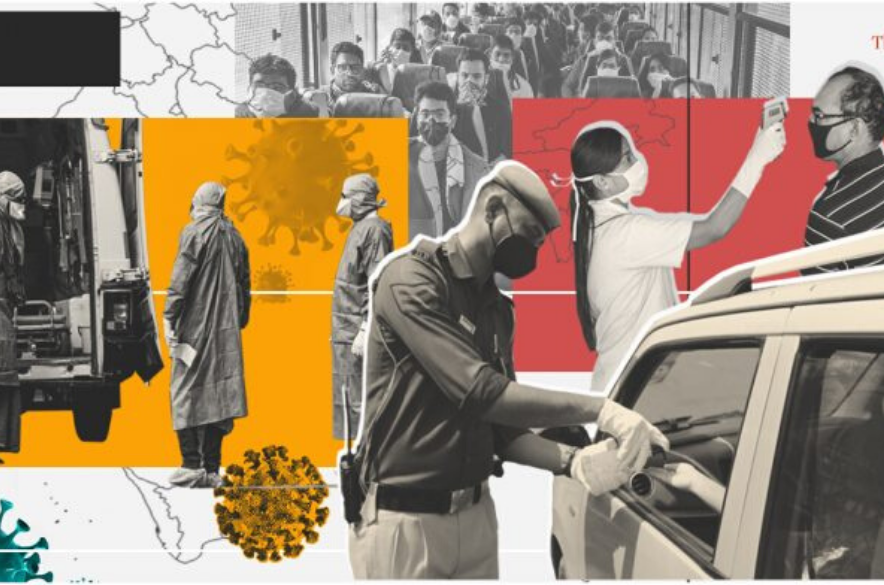Around the world, social entrepreneurs are necessary catalysts for social change. Quick to see what is wrong in the world, social enterprises have been key players in bringing the necessary change to individual people, communities, and the world at large.
Where social entrepreneurs and social impact workers have been aware of systemic inequalities that have existed for decades, the emergence of coronavirus has made these clearer for the rest of the world. COVID-19 has presented the world with a new look at how individuals or certain groups are exposed to health crises, food shortages, job insecurity, and more. It is becoming increasingly clear outside the social enterprise sector that social impact entrepreneurs and companies are needed in this space.
Crisis and social change
Crisis has an interesting way of inciting positive change. Historically, national or global economic downfalls have paved the way for social entrepreneurship. In fact, it is commonly viewed that the official credentialisation of social enterprise took place in the context of economic crisis. The social impact sector is typically understood to grow during times where the economy as a whole begins to slow down.
In the business world as a whole, some of the biggest and best innovators have come during times of economic and social shock. By nature, entrepreneurs are keen to react to economic changes and much innovation comes out of periods of financial crisis or recession. Social entrepreneurs are additionally aware of the social losses brought on by these periods of economic disruption. They’re acutely aware of who’s disproportionately impacted by economic calamities and are able to use market-driven methods to address these social issues. And as social entrepreneurs, we tend to have some additional tools at our disposal: low costs of labor, tax benefits, less expensive supplies, and a unique understanding of how to reach customers and supporters.
In the short time since coronavirus made its messy debut, social enterprises have swept in to pick up the pieces. Asia is where coronavirus first came to existence, and it is also where social enterprises have become key players in relief efforts. From school closings to flight cancellations and factory jobs lost, social impact organisations and businesses have supported, and sometimes superseded, government aid.
The efforts range from providing free AI-backed education to children who have lost their schooling to organisations facilitating face mask and soap donations. In Singapore, a country hit by COVID-19 almost as hard as China, a social enterprise encourages residents to send e-cards to taxi drivers and domestic workers.
Other countries are only just beginning to fully realise the gravity of the coronavirus situation and how social impact organisations are necessary. But the world is also beginning to see how this crisis, while separating us physically, is bringing us together in novel ways. The World Economic Forum has labeled it a “pandemic of solidarity.” This time has facilitated a general sense of camaraderie amongst the billions who have been directly or indirectly impacted by coronavirus. This is a perfect breeding ground for social entrepreneurship.
What about Australia?
In Australia, social enterprises address needs and provide services in education, training, health care, biotech, pharmaceuticals and information technology. As we stand at an unprecedented confluence of wealth, opportunity and need, social enterprises, driven by the duality of seeking social impact alongside financial return, are an important part of the way forward.
Economic crises normally mean that philanthropies pull back and wait for the economy to get its footing. During the current climate, however, philanthropies appear to be more interested in how they can support the impact sector. One American office involved in grant-making has reported that restrictions have been removed for grantees. Where finances may have been aligned with a specific deliverable in the past, they’re now able to be used in any capacity the social enterprise sees fit.
In Hong Kong, there’s an acute awareness of the need for social entrepreneurship, especially in the time of COVID-19. Social enterprises are reporting disappointing financial turnovers, especially in the training and education sector. The Hong Kong General Chamber of Social Enterprises is calling on the government to support a handout to help them mitigate the losses from coronavirus.
Beyond finances, the face-to-face interaction is another concern for social entrepreneurs. Like universities, schools, and businesses around the world, the social impact sector is also experimenting with virtual meetings and relationships. This is where fellow entrepreneurs and social impact workers come in. We need each other for ideas, and as sounding boards. We may be spatially isolated, but we need each other like never before. The social sector is used to unique forms of networking and collaborating, and this is no exception.
Cataloging the impact of COVID-19 on social enterprises across Australia
In Australia, the social enterprise community understands the importance of reducing the spread of COVID-19, but the government must recognise the value of sustaining a thriving social enterprise community. To catalogue the impact COVID-19 has had on social enterprises across Australia and support a national effort to advocate for targeted assistance for social enterprises, please head to thegoodnessgap.org to fill out a 3-minute survey. Is COVID-19 forcing your social enterprise to cancel its biggest fundraising event of the year? Is it increasing demand for your services? How many staff have you had to let go? Together we need to ensure that the government hears from you because social enterprises often fall in the gap between support for small business and charities.
At Social Change Central, we have compiled a list of the latest information and resources that social enterprises can use to prepare and respond. From financial assistance to peer-support networks. While there is never a playbook to weather global challenges like COVID-19, we’re hoping the information will help you take care of your employees and support your enterprise’s ability to adapt to change, cause the least disruption in the long run and even seize opportunities.
This is a period of social and economic experimentation. We’re in uncharted territory. Never before have we experienced a crisis quite as unique as the current one. But, when viewed through the right lens, this is a perfect time for social entrepreneurship. The world is becoming increasingly aware of the social and economic injustices faced by segments of the population. As no one is immune to the challenges brought on by coronavirus, we’ve seen the world come together to help one another out in these trying times. We can make it through this period, but to provide long-term support to those who need it, social enterprises have a key role to play.



